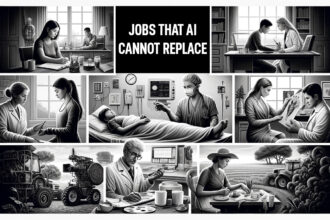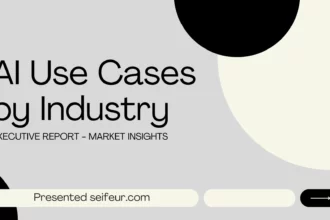Can ChatGPT replace consulting? Find out how this cutting-edge AI is reshaping the consulting landscape and what it means for the future of the industry. From real-time communication to surprising anecdotes, we’ll explore the impact of ChatGPT on consulting efficiency and uncover its potential to revolutionize the way we work. Join us as we delve into the intersection of AI and consulting, and discover what the future holds for this dynamic partnership.
Key Takeaways
- Chat GPT will not be able to replace human consultants in the near future.
- Human consultants bring creativity, strategic insight, and personal judgment that AI cannot replicate, especially on complex projects.
- Chat GPT can assist management consultants by generating high-quality content for reports and presentations based on their inputs.
- Generative AI tools like Chat GPT can streamline the consulting process by processing and interpreting large datasets for data-driven decision-making.
- While Chat GPT can offer valuable next steps, it is important to trust consulting skills and experience to guide the best next steps for clients.
- AI will not replace consultants, and there will always be a need for person-to-person consulting in the industry.
Table of Contents
ToggleThe Role of ChatGPT in Modern Consulting
In today’s rapidly evolving tech landscape, the question arises: Can ChatGPT replace consulting? While AI technologies like ChatGPT offer substantial benefits in analyzing, researching, and optimizing processes, they cannot entirely replace the nuanced roles of human consultants. Consulting is more than just data analysis; it involves real-time communication, understanding context, and applying domain-specific expertise to complex problems.
Consultants excel in engaging in real-time conversations, adapting their responses based on the flow of the conversation. This adaptability allows them to handle complex discussions and fully grasp the context of each client’s unique challenges. In contrast, while ChatGPT can respond promptly to queries, its capability to manage layered discussions or completely understand nuanced contexts is still developing.
Moreover, consultants often hold specialized knowledge in specific domains or industries, which enables them to provide deep, contextual expertise that generic AI, trained on broad datasets, cannot match. This domain expertise is crucial in crafting tailored strategies that effectively address the specific challenges and opportunities within a particular industry.
Despite these limitations, ChatGPT can still play a significant role in supporting consultants. For instance, it can efficiently handle tasks such as generating data-driven reports or aiding in preliminary analysis, which allows consultants to focus more on strategic decision-making and client relationships.
Therefore, while ChatGPT is a valuable tool that can augment the capabilities of consulting firms, it is not positioned to replace human consultants fully. It lacks the ability to mimic the creative, strategic, and interpersonal skills that are vital in consulting.
Impact of ChatGPT on Consulting Efficiency
One of the significant advantages of integrating ChatGPT into consulting practices is its ability to enhance operational efficiency. ChatGPT can process and interpret vast amounts of data quickly, offering insights that might take much longer to derive manually. This capability can significantly streamline the consulting process, especially in data-driven fields such as market analysis and financial forecasting.
For example, a consultant might use ChatGPT to perform initial data analysis or to draft reports that outline findings from various datasets. This not only speeds up the workflow but also allows consultants to allocate more time to develop creative solutions and strategies. Additionally, ChatGPT’s ability to rapidly generate written content can aid consultants in preparing high-quality presentations and detailed reports for clients.
However, it’s crucial to note that while ChatGPT can suggest possible next steps based on data analysis, the final decision-making should always rely on the consultant’s expertise and judgment. This blend of human expertise and AI-powered analytics leads to more informed and effective consulting services.
ChatGPT’s role in consulting, therefore, is best viewed as a support tool that enhances the efficiency and productivity of human consultants rather than as a replacement. By automating routine tasks and processing large datasets, ChatGPT allows consultants to focus on the more nuanced aspects of their roles, such as client management and strategic planning.
More >> AI Use Cases by Industry: Transforming Operations and Personalized Experiences Across Sectors
Future Directions in AI and Consulting
Looking forward, the integration of AI like ChatGPT in consulting is set to deepen, with more sophisticated tools likely emerging as technology advances. These tools will increasingly assist consultants in various ways, from predictive analytics to more enhanced client interaction simulations.
However, the core of consulting will likely remain reliant on human skills, particularly in areas requiring interpersonal communication, judgment, and creative problem-solving. The future of consulting may see a hybrid model where AI tools and human consultants work in tandem, leveraging the strengths of each to deliver superior results to clients.
Trending — Unveiling the Power of Amazon’s GPT55X: Applications, Implementation, and Future Prospects
Moreover, as AI tools become more prevalent in the industry, there will be a growing need for consultants to adapt and learn how to coexist with these technologies. Consultants who can effectively integrate AI into their workflows will likely find themselves at a competitive advantage.
In conclusion, while ChatGPT and similar AI technologies will transform certain aspects of consulting, they are not a threat to the fundamental role of human consultants. Instead, AI should be seen as a powerful ally that can enhance the value consultants provide to their clients, ensuring that consulting services are more efficient, data-driven, and responsive to client needs.
As the consulting industry continues to evolve, those who embrace AI will not only safeguard their roles but will also lead the charge in defining the next era of consulting services.
1. Can ChatGPT completely replace consulting?
Answer: No, ChatGPT cannot entirely replace consulting as it lacks the ability to mimic the creative, strategic, and interpersonal skills vital in consulting. While it can handle tasks like generating reports and aiding in preliminary analysis, it cannot fully replicate the nuanced roles of human consultants.
2. What are the advantages of integrating ChatGPT into consulting practices?
Answer: Integrating ChatGPT into consulting practices can provide benefits such as efficiently handling tasks like generating data-driven reports, aiding in preliminary analysis, and allowing consultants to focus more on strategic decision-making and client relationships.
3. How does ChatGPT compare to human consultants in real-time communication?
Answer: Human consultants excel in engaging in real-time conversations, adapting their responses based on the flow of the conversation, and fully grasping the context of each client’s unique challenges. In contrast, while ChatGPT can respond promptly to queries, its capability to manage layered discussions or completely understand nuanced contexts is still developing.
4. What specialized knowledge do consultants possess that ChatGPT lacks?
Answer: Consultants often hold specialized knowledge in specific domains or industries, enabling them to provide deep, contextual expertise that generic AI, trained on broad datasets, cannot match. This domain expertise is crucial in crafting tailored strategies that effectively address the specific challenges and opportunities within a particular industry.
5. How much of a consultant’s workday can ChatGPT automate?
Answer: ChatGPT can automate tasks such as generating data-driven reports or aiding in preliminary analysis, but it cannot fully automate the diverse range of tasks and skills involved in a consultant’s workday, especially those requiring creative, strategic, and interpersonal skills.
6. What role can ChatGPT play in consulting despite its limitations?
Answer: ChatGPT can play a significant role in supporting consultants by efficiently handling specific tasks, allowing consultants to focus more on strategic decision-making and client relationships. However, it is not positioned to replace human consultants fully due to its current limitations.





